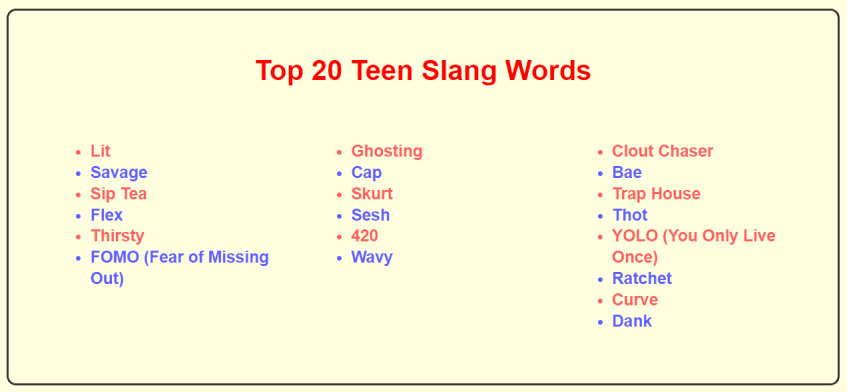TIME Meaning
TIME stands for Tears In My Eyes.
TIME is an internet slang initialism that conveys intense emotion.
How Is TIME Used? Use Cases & Examples
Internet slang TIME is an acronym used to convey deep emotion in digital conversations. This slang acronym is associated with the song Dancing with Tears in my Eyes, which has been recorded by several artists starting with Ultravox in 1984.
Examples of how your teen might use the slang term TIME:
- It was heartbreaking for Emily to meet her birth mother.
Oh, I’m sorry. TIME - His brother was deployed home to surprise the family!
TIME - Check out this link of animals that are friends with animals of different species.
Too sweet – TIME - I hate everyone at school, I just can’t go back.
TIME. Call me if you want.
How to Identify If Your Kids Are Using the TIME Slang Word
The popular phrase TIME is harmless, but that doesn’t mean other slang terms are also safe for kids. To keep your kids away from online threats, you must pay attention to every slang term they use. Here are two ways to detect the slang word TIME:
1. Check Their Phones Directly for the TIME Slang Word
Want to know if your children have used risky slang terms? The easiest way is to check their phones directly. You need to view their text messages, search history, and chat messages for the slang word TIME.
Cons:
- Affect your relationship with your kids
- Troublesome
- Can’t detect dangers timely
Pros:
- No need to install any app
2. Install A Parental Control App to Monitor the TIME Slang Word
A professional parental control app can help you spot teen slang words such as TIME on your kids’ phones. With this app, you can see insights into what they are searching for and what they are chatting about. And you will get instant alerts when specific slang terms are triggered. This way, you’ll be able to make the internet a little safer for your teens.
Pros:
- More features like chat monitoring, GPS tracking, call recording, surrounding recording, etc
- Instant alerts
- Easy to install and use
Cons:
- Some apps are not free
Parental Control Apps to Detect the TIME Slang Word
Android:
- Google Family link:
It is a family parental control service from Google that helps you check search history for the TIME slang word, restrict content, set screen time, and more. - iKeyMonitor:
iKeyMonitor is one of the most powerful parental control apps. It monitors SMS, chat messages, and searched terms on kids’ phones. It will take screenshots/photos and send instant alerts to you on triggered alert words such as TIME. Besides, it will record calls, surroundings and block inappropriate apps to protect your kids from threats.
iOS:
- Apple Screen Time:
With Apple’s built-in parental control setting, you can manage app limits, set content restrictions, and more. Just unlock the iPhone or iPad, then go to Settings and tap on Screen Time. - Norton Family Parental Control:
Norton Family provides insights that help you foster a healthy online/offline balance for your children and their devices. - Kaspersky Safe Kids with GPS:
Kaspersky Safe Kids is a popular parental control app that provides web monitoring, app blocking, filtering, and more. - Alertbird Parental Control:
Alertbird is a parental control app for iOS that monitors the TIME slang term and other dangerous words. You will be notified immediately if it detects alert keywords in your searched terms and chat messages, such as the TIME slang word.
Tips to Talk With Your Kids About the Use of the TIME Slang Word
It is a normal stage of adolescents to feel strong emotions in their maturation process. Supporting your children while allowing them to navigate puzzling emotions in a productive way is a great life skill to learn. Allowing your teens to deal with life’s ups and downs will make them more resilient in the long run. Here are some tips to help your teens manage their emotions:
- Validate your teens’ feelings by listening empathetically and non-judgmentally.
- Support your teens’ independence.
- Offer choice and enforce boundaries.
- Show tolerance and hope.
- Teach your teens to negotiate and choose priorities.
